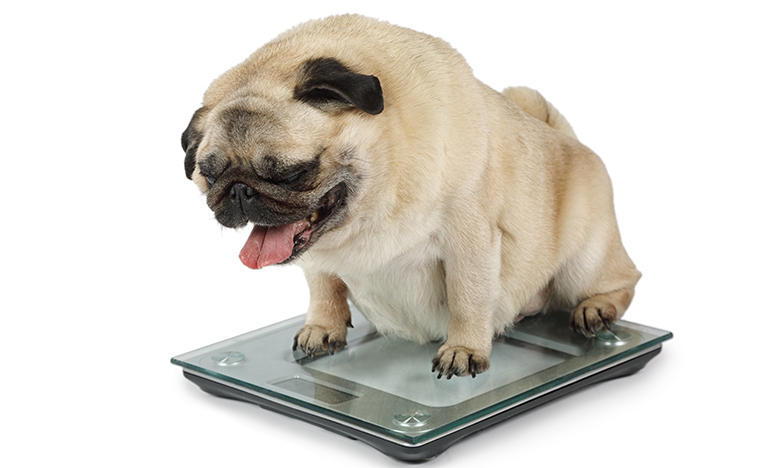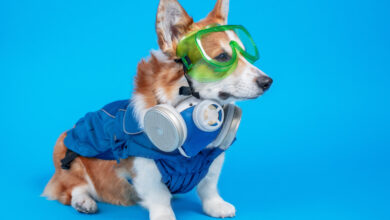A Complete Guide to Diagnosing and Treating Obesity in Dogs

Have you ever noticed your pet dog struggling to keep up during playtime or panting heavily after a short walk? Additionally, have you noticed their belly starting to hang lower, or are you struggling to feel their ribs? If so, you might wonder if your dog is gaining weight and if this could be a problem.
Obesity is a common concern for dog owners, and it is important to understand that just like humans, our canine companions can also struggle with obesity.
Obesity in dogs is a growing concern, not just for their appearance but for their overall health and well-being. Understanding how to identify and manage it is crucial for ensuring your pet leads a happy and healthy life. Check out https://ashariopets.ca to know more.
How to Diagnose Obesity in Dogs?
The first thing is how to tell if your dog is overweight to effectively manage it. Common indicators include:
- Visible weight gain: An increased body weight is often the most apparent sign.
- Difficulty breathing: An Overweight dog may exhibit shortness of breath, especially during exercise.
- Reduced mobility: Look for signs of lethargy or difficulty in getting up, climbing stairs, or engaging in play.
A basic at-home assessment can help you gauge your dog’s weight. Try to feel for their ribs; if you cannot easily feel them, your dog may be overweight. Additionally, check for a defined waistline when viewed from above. A healthy dog should have a slight taper from the ribcage to the abdomen.
While these signs can help you assess your dog’s weight, a veterinary check-up is essential for a definitive diagnosis. Your veterinarian can rule out other health issues by providing a Body Condition Score (BCS) and comparing it to breed-specific weight standards.
Understanding the Causes of Obesity in Dogs
The fearful thought that strikes our mind is what happens if my dog is overweight?
Well, obesity in dogs is often the result of a combination of factors:
- Overfeeding and lack of exercise: Many pet owners unknowingly overfeed their dogs and do not provide regular physical activity making them at a higher risk of becoming overweight.
- Age: Older dogs tend to be less active and require fewer calories, so feeding them mindfully becomes essential.
- Breed: Some breeds such as Labrador Retrievers and Beagles, are genetically predisposed to obesity.
- Underlying health conditions: Conditions like hypothyroidism or Cushing’s Syndrome can also lead to weight gain.
Effective Strategies on how to treat obesity in dogs
Making an effective weight management plan requires the following strategies:
- Consult your veterinarian: Work with your vet to create a tailored weight management plan that includes a balanced diet and portion control. They can recommend specific dog foods, such as those provided by Virbac India, which are designed to support overall health and weight management.
- Introduce a balanced diet: Focus on high-quality, low-calorie dog foods which have reduced calories and increased fibre. Virbac’s dry dog food is formulated to provide essential nutrients while helping to maintain a healthy weight.
NUTRICH® provides a comprehensive solution for dog nutrition by delivering essential vitamins and minerals in a highly palatable tablet form, ensuring your pet receives the micronutrients necessary for optimal well-being.
- Exercise routines: Regular walks, playtime, and other forms of physical activity are crucial for calorie burning. Start with short walks and gradually increase the duration and intensity as your dog becomes more fit. Tailor the exercise to your dog’s age, breed, and fitness level.
- Monitor treat intake: Be mindful of the treats you offer. Opt for low-calorie options and limit the quantity. Establish a consistent feeding schedule and avoid free-feeding, which can lead to overeating.
Conclusion
Managing your dog’s weight is a proactive step that can significantly enhance their quality of life. As a dog parent, you can check the signs of obesity and understand its causes. This allows you to take meaningful action to help your dog achieve and maintain a healthy weight. Remember, your veterinarian is your best resource for personalised advice and treatment plans.
While a balanced diet is crucial, Virbac India’s dry dog food and puppy food can help fill nutritional gaps and support various aspects of your dog’s health. NUTRICH® offers a complete solution for dog nutrition by providing essential vitamins and minerals that support growth, skin health, pregnancy, and overall well-being.
Remember, maintaining a healthy weight not only improves your dog’s quality of life but also enhances their energy and vitality.





